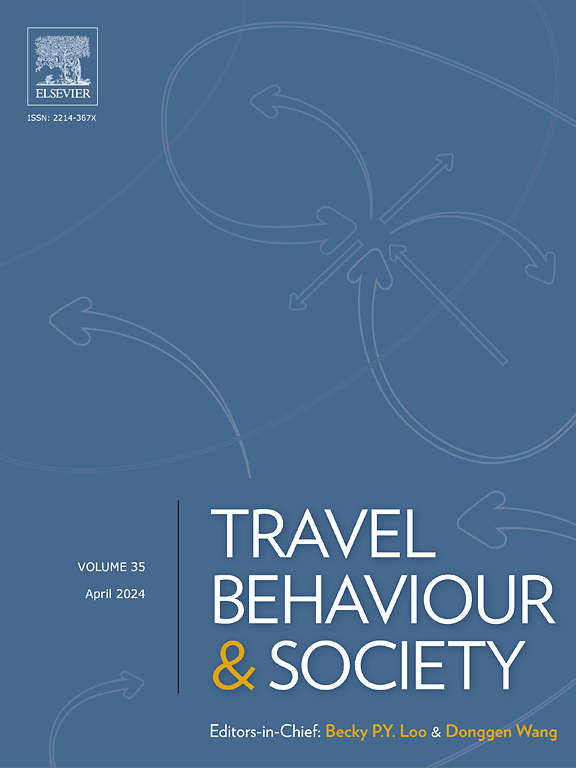通过MGWR评估多式联运选择:来自安卡拉-伊斯坦布尔走廊的见解
IF 5.7
2区 工程技术
Q1 TRANSPORTATION
引用次数: 0
摘要
本研究利用多尺度地理加权回归(MGWR)分析了高需求的安卡拉-伊斯坦布尔走廊沿线的多式联运选择,以捕捉出行行为的空间异质性。该分析将总出行时间作为因变量,纳入公共汽车、高铁和航空旅行的访问和行程持续时间,不包括私家车的使用。MGWR框架揭示了四个关键发现:(1)终端接入时间是一个关键的决定因素,更短的接入持续时间有利于特定模式;(2)社会经济因素显著影响出行方式的选择,高收入旅客主要选择航空出行,而老年人更倾向于公交出行;③天气条件和出行频次的影响呈现空间差异,常旅客对铁路交通的倾向较强;(4)安卡拉和伊斯坦布尔之间的可达性差距凸显了有针对性的基础设施改善的必要性,特别是在机场和铁路连接方面。这些发现强调了空间适应性政策干预的重要性。加强安卡拉的铁路通达性,优化伊斯坦布尔的机场连通性,可以缓解旅行效率方面的地区差异。总体而言,研究结果强调了在空间上进行细致入微的政策干预的必要性,并证明了MGWR在制定以用户为中心的综合多式联运战略方面的效用。本文章由计算机程序翻译,如有差异,请以英文原文为准。
Evaluating multimodal travel choices through MGWR: insights from the Ankara-Istanbul corridor
This study examines multimodal transportation choices along the high-demand Ankara–Istanbul corridor using Multiscale Geographically Weighted Regression (MGWR) to capture spatial heterogeneity in travel behavior. Focusing on total travel time as the dependent variable, the analysis incorporates access and trip durations for buses, high-speed rail, and air travel, excluding private vehicle use. The MGWR framework reveals four key findings: (1) Terminal access time is a crucial determinant, with shorter access durations favoring specific modes; (2) Socio-economic factors significantly influence mode choice, as higher-income travelers predominantly opt for air travel, while older individuals demonstrate a preference for bus services; (3) Weather conditions and travel frequency exhibit spatially varying effects, with frequent travelers showing a strong inclination toward rail transport; and (4) The accessibility gap between Ankara and Istanbul underscores the need for targeted infrastructure improvements, particularly in airport and rail connectivity. These findings highlight the importance of spatially adaptive policy interventions. Enhancing rail accessibility in Ankara and optimizing airport connectivity in Istanbul could mitigate regional disparities in travel efficiency. Overall, the results underscore the necessity for spatially nuanced policy interventions and demonstrate the utility of MGWR in formulating integrated, user-centric multimodal transportation strategies.
求助全文
通过发布文献求助,成功后即可免费获取论文全文。
去求助
来源期刊

Travel Behaviour and Society
TRANSPORTATION-
CiteScore
9.80
自引率
7.70%
发文量
109
期刊介绍:
Travel Behaviour and Society is an interdisciplinary journal publishing high-quality original papers which report leading edge research in theories, methodologies and applications concerning transportation issues and challenges which involve the social and spatial dimensions. In particular, it provides a discussion forum for major research in travel behaviour, transportation infrastructure, transportation and environmental issues, mobility and social sustainability, transportation geographic information systems (TGIS), transportation and quality of life, transportation data collection and analysis, etc.
 求助内容:
求助内容: 应助结果提醒方式:
应助结果提醒方式:


